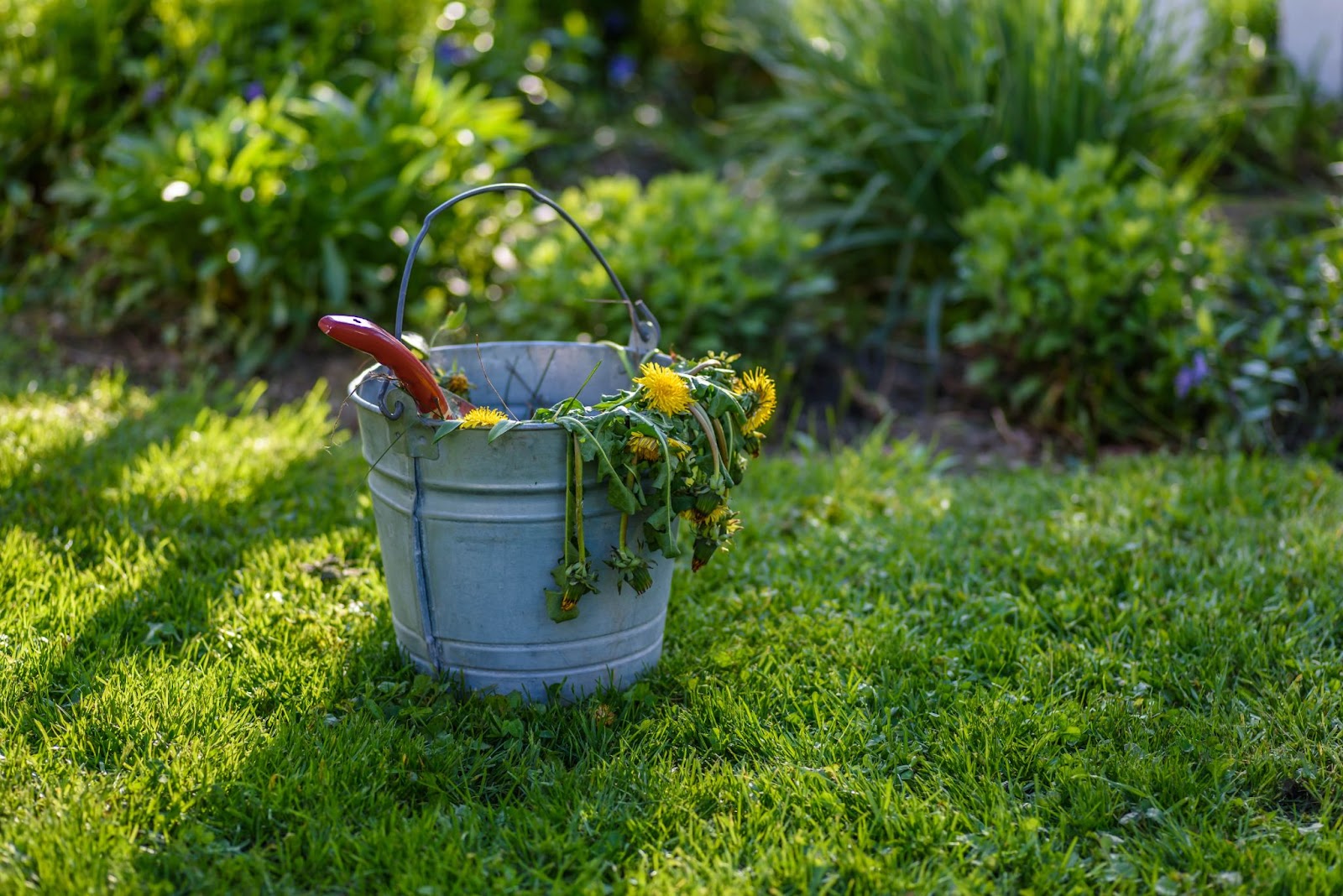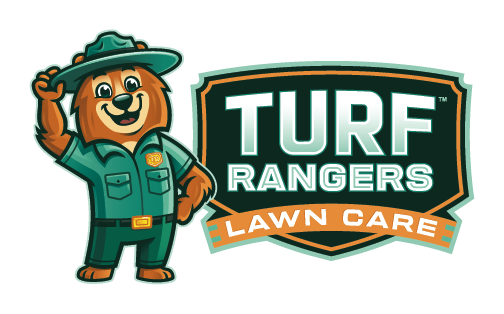Creating a lush and thriving lawn is a goal shared by many homeowners. In the quest for a beautiful yard, one crucial factor stands out: proper lawn fertilization.
Understanding the unique needs of your lawn and implementing tailored fertilization techniques is essential for cultivating the vibrant outdoor space you’ve always dreamed of.
In this comprehensive guide on lawn fertilization in Watkinsville, GA, we will delve into the intricacies of fertilization practices designed to optimize the health and beauty of your lawn.
From unraveling the mysteries of essential nutrients required by your grass to unveiling the best application methods, we are here to equip you with the knowledge and tools needed to unlock the full potential of your lawn.
Understanding the Basics of Lawn Fertilization
To the naked eye, a lawn may appear as simple grass growing on soil, but beneath the surface lies a complex world of nutrients and biological processes that determine its health and vibrancy.
Understanding the basics of lawn fertilization is the first step toward nurturing a thriving and lush outdoor space. Let’s dive deeper into the essential elements of lawn fertilization:
Exploring the Essential Nutrients for Optimal Grass Growth
Just as a vehicle needs fuel for peak performance, your lawn thrives on a carefully balanced supply of essential nutrients. These nutrients serve as the backbone for lush foliage, robust root systems, and overall vitality.
For optimal grass growth, three primary plant nutrients are essential: nitrogen (N), phosphorus (P), and potassium (K), often collectively referred to as NPK.
Nitrogen
Nitrogen is crucial for promoting vigorous leaf and stems growth, resulting in that coveted lush green appearance. It is used by plants to produce sugar from carbon dioxide and water. This makes it crucial for healthy photosynthesis, leading to increased energy production for the grass.
Phosphorus
Phosphorus plays a vital role in root development, aiding in the establishment of a robust root system. It helps the grass absorb and transfer nutrients, making it more resilient against stress factors such as drought or foot traffic.
Potassium
Often referred to as the “strength nutrient,” potassium helps your lawn withstand environmental stressors, such as drought, disease, and temperature extremes. It enhances disease resistance, promotes water efficiency, and improves overall plant health.
Achieving the right balance of these nutrients is crucial for a healthy lawn.
While different grass species may have specific nutrient requirements, a general rule of thumb is to aim for a nitrogen-phosphorus-potassium (N-P-K) ratio of around 3:1:2.
Soil Testing and Analysis to Determine Nutrient Deficiencies
Every lawn has unique soil composition, and understanding the specific nutrient needs of your soil is crucial for effective fertilization. Soil testing is a valuable tool that provides insights into your soil’s nutrient levels and pH balance.
By collecting soil samples from different areas of your lawn and sending them to a reputable laboratory for analysis, you can gain a comprehensive understanding of your soil’s composition.
The soil test results will highlight any nutrient deficiencies or excesses, enabling you to tailor your fertilization approach accordingly.
This targeted approach ensures that your lawn receives the nutrients it requires without unnecessary or ineffective applications.
Choosing the Right Type of Fertilizer for Watkinsville, GA
Once you have determined your lawn’s nutrient requirements, the next step is selecting the appropriate fertilizer. Fertilizers come in different forms, including granular, liquid, or organic options.
Granular Fertilizer
Granular fertilizers are slow-release fertilizers that are popular due to their ease of application. They provide a steady supply of nutrients over time, ensuring consistent and even growth for your grass.
Liquid Fertilizer
Liquid fertilizers are fast-acting and quickly absorbed by the grass. They are suitable for providing immediate nutrients or addressing specific deficiencies.
Organic Fertilizer
Organic fertilizers, derived from natural sources such as compost or animal manure, offer a sustainable and environmentally friendly option. They nourish the soil, improve its structure, and promote long-term soil health.
When selecting a fertilizer for your lawn, it’s essential to consider the specific needs of your grass plants, the overall health of your lawn, the appropriate fertilizer grade, and how much fertilizer will be required. Taking these factors into account will ensure that you make an informed decision and keep your lawn healthy and green for years to come.
Best Practices for Lawn Fertilization in Watkinsville, GA
Lawn fertilization is a multifaceted process that goes beyond surface-level care. To promote lawn health, it’s important to follow best practices that ensure optimal results. Follow these guidelines for fostering healthy lawns that are the envy of the neighborhood.
Timing: When and How Frequently to Fertilize Your Lawn
Timing is crucial when it comes to fertilizing your lawn. Consider the following:
Seasonal Timing: Time your fertilizer applications during periods of active growth for your grass type. In Watkinsville, GA, cool-season grasses benefit from fertilization in early spring and fall, when they naturally thrive.
Application Frequency: Plan a regular fertilization schedule, typically two to four times a year, ensuring a consistent nutrient supply without overwhelming the grass. Spacing out applications allows for steady growth and avoids excessive or uneven nutrient uptake.
Application: How to Ensure Even Fertilizer Distribution
Proper application techniques contribute to even nutrient distribution across your lawn. Here’s what to keep in mind:
Calibrated Spreader: Utilize a calibrated spreader to achieve accurate and uniform fertilizer distribution. This ensures consistent coverage and prevents patchy growth.
Overlapping Pattern: Maintain a steady pace while applying fertilizer, overlapping each pass slightly. This technique guarantees even spreading and avoids missed areas.
Follow Label Instructions: Read and follow the instructions on the fertilizer package carefully. The guidelines provide valuable information on application rates, spreader settings, and any specific recommendations for optimal results.
Factors to Consider: Weather Conditions and Grass Type
Take into account the following factors to tailor your fertilization approach effectively:
Weather Conditions: Avoid fertilizing during extreme heat or drought periods. Opt for milder weather conditions that allow the grass to actively absorb nutrients without undue stress.
Grass Type Specifics: Different grass types have varying nutrient requirements and tolerances. Familiarize yourself with the specific needs of your grass type to choose the appropriate fertilizer formulation and adjust application rates accordingly.
Environmental Consciousness: Be mindful of the environmental impact of your fertilization practices. Avoid spreading fertilizer on impervious surfaces to prevent runoff into water bodies. Opt for slow-release or controlled-release fertilizers that minimize nutrient leaching and maximize absorption by the grass.
Taking these measures will contribute to the long-term well-being of your lawn, resulting in a lush and thriving outdoor space that you can take pride in.
Troubleshooting Common Fertilization Issues
Are you diligently following the best practices for lawn fertilization in Watkinsville, GA, but not getting the desired results? Don’t worry, you’re not alone. Let’s explore some common fertilization challenges and how to address them effectively.
Nutrient Deficiencies and How to Identify and Address Them
Nutrient deficiencies can hinder your lawn’s growth and overall health. Visual signs of nutrient deficiencies include:
- Yellowing or discolored grass
- Stunted growth
- Thinning patches.
Conduct a soil test to determine the nutrient levels in your soil accurately. This analysis will identify any deficiencies and guide you in selecting the appropriate amendments or fertilizers. Based on the soil test results, apply fertilizers specifically formulated to address the identified nutrient deficiencies.
Dealing with Excessive Thatch and Compaction
Excessive thatch and soil compaction can hinder nutrient absorption and water penetration, leading to lackluster results. To take care of this problem:
- Remove excessive thatch buildup with a thatch rake or power dethatcher
- Alleviate soil compaction through core aeration
- Consider topdressing with compost or organic matter to enhance soil structure.
Managing Lawn Diseases and Pests Related to Fertilization Practices
Improper fertilization practices can sometimes contribute to lawn diseases and pest infestations. Here’s how to manage such issues:
- Avoid fertilizing during periods of high disease or pest activity. Instead, focus on promoting overall lawn health and addressing underlying issues.
- Implement an integrated pest management (IPM) approach to identify and control pests effectively.
- Practice good cultural practices, such as proper mowing height, adequate watering, and avoiding over-fertilization
By troubleshooting these common fertilization issues, you can overcome obstacles and improve the health of your lawn.
Achieving a stunning and thriving lawn in Watkinsville, GA is an ongoing journey that requires observation, adjustment, and regular care. With the right techniques and tools, you can create a lush lawn that’s the envy of your neighbors.
Experience the Difference with Turf Rangers – Your Trusted Experts for Lawn Fertilization in Watkinsville GA
When it comes to lawn fertilization and care, why go through the hassle and guesswork when you can rely on the expertise of Turf Rangers? As your trusted lawn care partner in Watkinsville, GA, we take pride in delivering exceptional results that go beyond your expectations.
With our comprehensive range of services, including expert fertilization and weed control, we take the burden off your shoulders and provide you with the lush, vibrant, and green lawn of your dreams.
We use only top-quality products and a research-based approach to ensure optimal results tailored to your specific needs.
Discover the convenience and peace of mind that comes with entrusting your lawn care to the experts. Contact Turf Rangers today and let us handle all your lawn care needs with precision and care.

